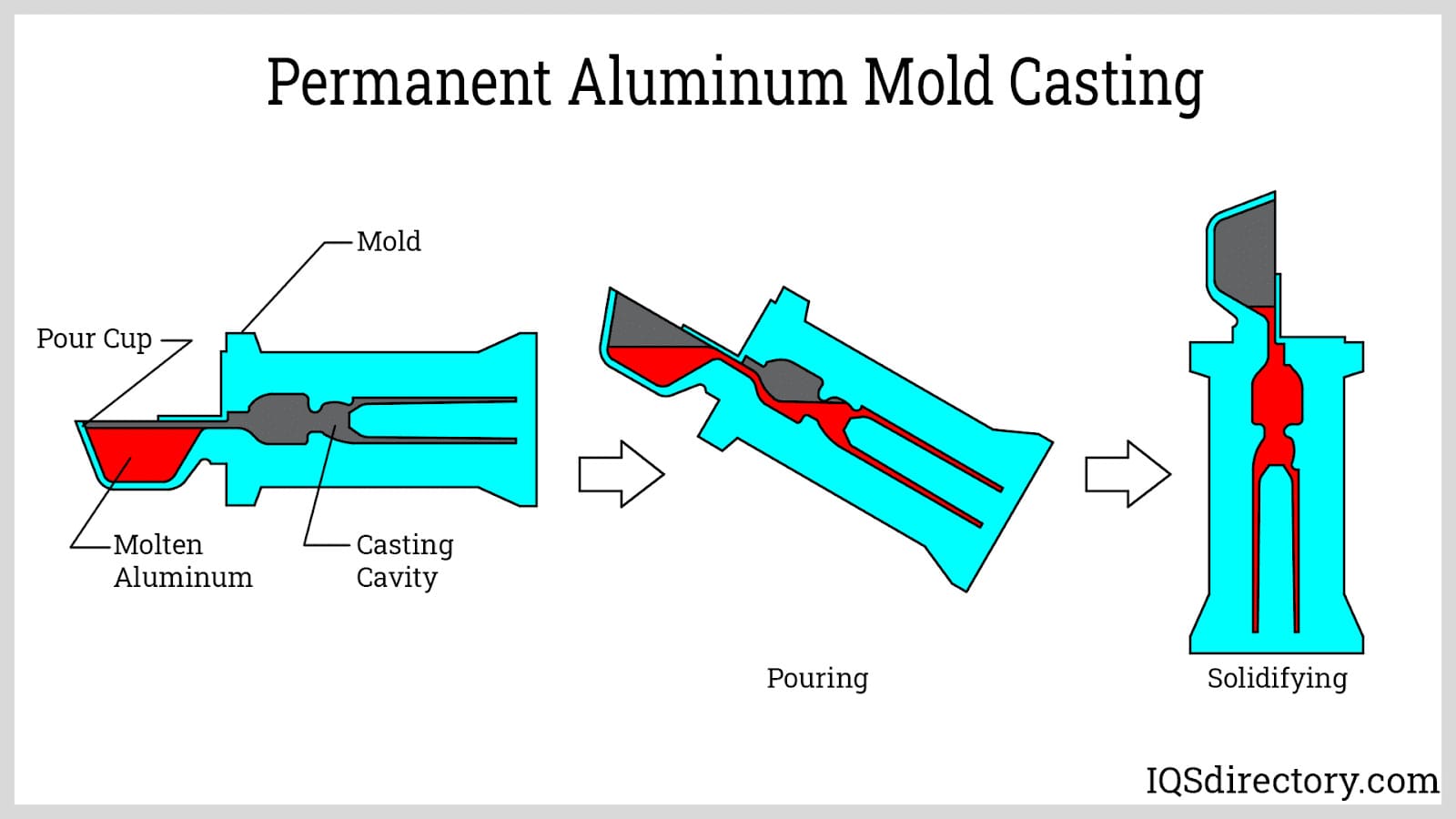Some Known Details About Aluminum Castings Company
6 Simple Techniques For Aluminum Castings Company
Table of ContentsThe Aluminum Castings Company StatementsThe Only Guide to Aluminum Castings CompanyAluminum Castings Company - An OverviewSome Known Factual Statements About Aluminum Castings Company Some Known Facts About Aluminum Castings Company.Not known Facts About Aluminum Castings CompanyThe Aluminum Castings Company PDFsAluminum Castings Company Fundamentals Explained
There are two key kinds of die casting used in the light weight aluminum casting sector: hot chamber die casting and cold chamber die casting. The key distinction in between these methods is how the molten metal is supplied to the mold and mildew. In hot chamber die spreading, generally used for reduced melting factor metals, the fusion is directly linked to the maker, and a plunger requires the product with a gooseneck right into the die dental caries.
Getting My Aluminum Castings Company To Work
In these techniques, the mold and mildew is purposefully damaged or escaped in order to extract the ended up light weight aluminum spreading. Common processes under the classification of expendable mold and mildew casting consist of (investment spreading),,, and investment spreading. When producing custom aluminum components making use of expendable molds, producers pour molten light weight aluminum or light weight aluminum alloys into the mold, which is after that damaged apart to release the solidified steel part.
The is just one of the earliest and most favored types of aluminum casting. It entails condensing specialty factory sand, frequently strengthened with clay or material, around a specifically crafted reusable pattern that determines the shape and interior details of the ended up light weight aluminum product. The pattern system incorporates risers and vents to take care of the flow of liquified metal and to stop casting problems such as shrinking porosity.
4 Easy Facts About Aluminum Castings Company Described

This mold is then preheated previous to the putting of molten light weight aluminum or aluminum alloy. As the steel fills the covering, it catches the intricate information and great surface coating of the mold and mildew. Once cooled, the ceramic is mechanically or chemically broken away, permitting for the removal and separation of specific cast components.
Top Guidelines Of Aluminum Castings Company
Irreversible mold casting uses recyclable steel mold and mildews and is ideal for mass production with constant high quality and much less waste. Expendable mold casting makes use of single-use molds, like sand or foam, using design versatility and reduced tooling expenses for prototypes or short runs. Pass away casting is best for producing high volumes of light weight aluminum parts that require limited resistances, fine details, and smooth surfaces.
The Toshiba Maker DC-J Collection consists of pass away casting equipments suitable for light weight aluminum. Recognized for their robust building and high shot performance, these devices make sure effective and precise spreading (Sand Foundry).

While aluminum can be utilized in its pure form, it is usually alloyed with other steels to improve its residential properties or the buildings of the other metals. These alloys provide enhanced performance for various applications. Light weight aluminum alloys are classified into 8 series, numbered from one to eight. The very first number(s) of the number indicate the primary alloying aspect integrated with light weight aluminum.
7 Simple Techniques For Aluminum Castings Company
This alloying enhances the toughness and firmness of aluminum yet reduces its ductility and rust resistance. The 2000 series alloys are testing to weld yet can be warmth treated to enhance their residential or commercial properties. The 3000 series alloys are mostly alloyed with manganese. This mix boosts corrosion resistance while providing moderate stamina.
The 4000 collection alloys are alloyed with silicon, which reduces the melting point and boosts fluidness. This makes it a prominent choice for spreading, as it is very easy to create in its liquified state.
Aluminum Castings Company Things To Know Before You Buy
This series is classified as a high-strength alloy, specifically fit for sheet and plate applications due to its excellent weldability. Its resistance to rust from acids and alkalis makes it excellent for use in severe and aggressive environments (Aluminum Melting and Casting). The 6000 collection alloys are alloyed with both magnesium and silicon, supplying a balance of toughness, mechanical residential properties, and corrosion resistance
Handling the 6000 collection needs specialized and sophisticated devices, which can be intricate and costly. Nonetheless, this collection is recognized for its outstanding rust and oxidation resistance, as well as its ease of finishing, therapy, and workability. The 7000 series light weight aluminum alloys are the toughest and most long lasting among aluminum types, with toughness comparable to about two-thirds of industrial-grade A3 steel.
An Unbiased View of Aluminum Castings Company
Zinc is the key alloying aspect in the 7000 collection, boosting the hardness of the aluminum, despite the fact that zinc's firmness resembles that of light weight aluminum on the Mohs scale. The 8000 collection aluminum alloys are largely alloyed with tin, in addition to little amounts of copper and nickel (Aluminum Sand Castings). While these alloys provide lower stamina compared to various other series, they master machinability and put on resistance
Aluminum cast heatsinks are electrically conductive, enabling them to be based effectively. They are commonly cast with integrated attributes that lessen the requirement for secondary procedures, such as added machining or assembly, bring about additional price savings. Light weight aluminum casting is frequently made use of to produce braces for both durable industrial devices and family appliances.
The smart Trick of Aluminum Castings Company That Nobody is Talking About
The single-piece building and construction of light weight aluminum braces enhances their toughness and longevity, reducing the likelihood of failure. If holes are required, they can be included directly in the casting mold, minimizing the requirement for post-production ending up (https://alumnmcstngs.carrd.co/). Makers have increasingly embraced light weight aluminum spreading for golf tools more info due to its longevity, stability, and adaptability in shaping